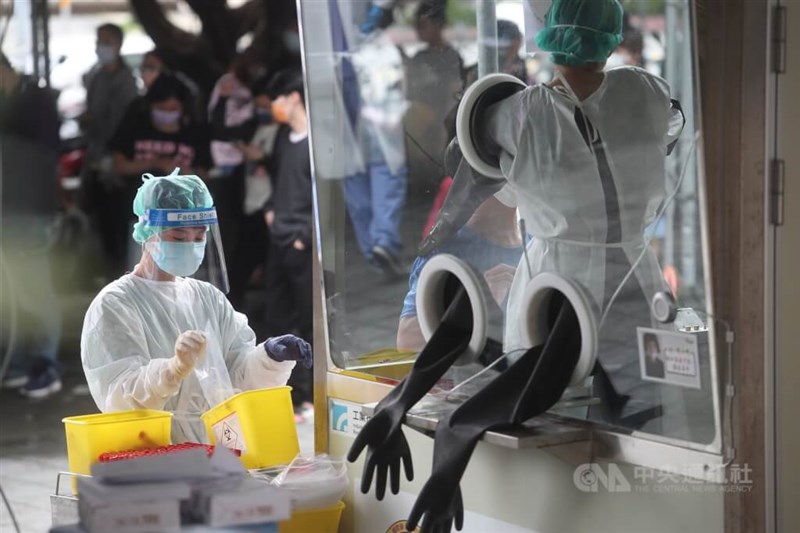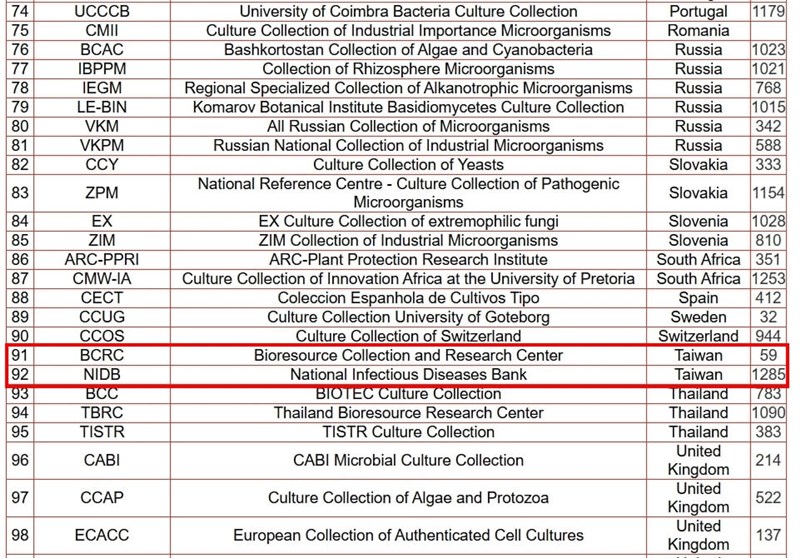
Taipei, Oct. 11 (CNA) Taiwan's National Infectious Diseases Bank (NIDB), to be completed next year, will mark a key step forward in the nation's biomedical development through stronger global health collaboration, officials said on Friday.
National Health Research Institutes (NHRI) President Sytwu Huey-kang (司徒惠康) said the NIDB will serve as a national repository for pathogen samples, forming a crucial foundation for vaccine, diagnostic and drug research.
According to Sytwu, the NIDB project was first proposed in 2020 during the COVID-19 pandemic, when researchers and biotech firms struggled to obtain clinical specimens due to strict isolation protocols.
Under the Ministry of Health and Welfare's leadership, the NHRI later partnered with the Centers for Disease Control (CDC) to legally transfer specimens -- such as blood and saliva -- collected from hospitals to the NIDB for broader research use, he said.
Sytwu called this a "major regulatory breakthrough" that strengthens Taiwan's infectious disease research capabilities.
He added that Taiwan has also joined two major international alliances -- the World Federation for Culture Collections (WFCC) and the Asian Consortium for the Conservation and Sustainable Use of Microbial Resources (ACM) -- as an official member "under the national flag."

The WFCC, based in the Netherlands, includes over 100 institutions from 80 countries, while the Japan-based ACM has around 35 member organizations.
Through these memberships, Taiwan can contribute its unique pathogen strains and gain access to key global samples, allowing the country to track disease trends more effectively, he said.
"Future pandemics will inevitably be global in nature," Sytwu said. "International collaboration will enable Taiwan to obtain pathogen data more quickly and enhance its preparedness."
Sytwu made the remarks on Friday in response to President Lai Ching-te's (賴清德) National Day address earlier in the day, in which Lai said the NIDB would play a central role in advancing Taiwan's biomedical ambitions.
In his speech, Lai said the government aims to strengthen Taiwan's biomedical sector through a large-scale innovation program, and "encourage more firms to invest in innovative R&D and move the biomedical industry toward becoming a trillion-NT-dollar industry."
-
Society
Brief showers expected across Taiwan Monday through Wednesday
03/01/2026 01:26 PM -
Society
Taiwan headline news
03/01/2026 01:18 PM -
Society
Six flights at Taoyuan airport canceled after U.S.-Israeli strikes on Iran
03/01/2026 11:08 AM -
Business
Taiwan to raise natural gas prices by 3% on average in March
02/28/2026 09:14 PM -
Politics
Taichung mayor to visit U.S. in mid-March
02/28/2026 08:52 PM